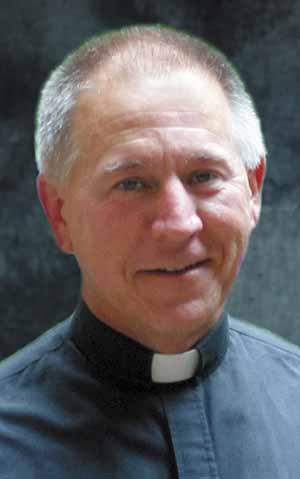
By Fr. Bud Grant
“Everything is impossible, everything is impossible.” So goes the refrain to a song by Dave Whisker, a talented musician and (not irrelevantly) an experienced high school teacher. His lyrics reveal a fascinatingly quirky worldview that rewards consideration.
Everything IS impossible, and yet everything is. The closer one explores the natural order of God’s creation, the more improbable it is. If the “big bang” had lasted a nanosecond more or less, everything is impossible. If our planet had not been launched in the “Goldilocks” zone — neither too hot nor too cold — everything is impossible. If the comet had not plunged into the Gulf of Mexico at just that angle, everything is impossible. If our ancestors had not evolved symbolic thinking, everything is impossible. The mind reels at the fathomless impossibilities that make creation and our place in it so absurdly unlikely. That we can share these musings together … well, you get the point. One of these quiet, lightning-bug-blinking, cicada-singing, breeze-whispering August evenings, pause and peer into the wine dark sea of space, and give thanks for our improbable habitation on this “blue boat home” (as lyricist Peter Meyer calls earth).
As science fills in more lacunae in our understanding of the cosmos, God seems to be left with an ever smaller niche — like a polar bear on a melting ice sheet. This is what pop-evolutionary biologist Richard Dawkins derisively calls the “God of the Gaps.” Such scientists-cum-atheist proselytizers herald the day when God’s gaps are finally filled in. Not all scientists share his evangelical atheism: 50 percent of the science faculty of the nation’s leading research universities are believers (we are meant to be amazed at how high this percentage is).
Terrified by the melting away of the Creator’s role, too many believers flee to a revamped neo-creationism that mutilates the evidence of reason into pseudo-scientific jargon and crushes the Scriptures into pallid literalism. According to this month’s Scientific American, less than half of Americans accept evolutionary principles (45 percent, to be exact). The National Science Board, which conducted the survey, deleted this finding from its annual report “because responses conflated knowledge and beliefs” and so the data was considered to be flawed. Really.
At close inspection, by “proving” the existence of God precisely in the gaps that remain in our scientific understanding of nature, neo-creationism preaches a God of Diminishment. This is not faith, but an anti-rational ideology propping up a god so weak that he (the Creationist’s god is absolutely masculine) needs to be protected from our ability to reason, which, need it be said, is God’s gift. Similarly, it deprives the Bible of its beauty, poetry and theology. This is important: the Scriptures do not treat matters of the natural sciences. They are the works of complex, conflicting and (variously sophisticated) theology.
On the other hand, atheist evangelicals forget rigorous scientific method back in their labs when they expound anti-religionism. Dawkins’ mean-spirited diatribe, The God Deception, for example, cherry-picks facts, “straw dogs” adversaries, employs proof by repetition, obfuscates with long digressions and opines heavy-handedly. Even his pro forma ode to the mystery of nature has the tin ring of a televangelist. Neo-Creationists and evangelical atheists have a lot in common really: both would diminish God into ever smaller niches of unexplained evolutionary biology, both pursue irrational evangelism.
We can avoid the parsimonious reductionism that proves or disproves God’s existence in the gaps of evolutionary biology and the invective-laced irrational attack on or by religious ideology. Revel in the impossibility-that-is, in Creation’s fecund profligacy that reaches a crescendo in the improbable creativity, imagination, emotion and self-sacrificial transcendence of the human soul. Rational faith seeks understanding; it does not cringe at scientific discoveries, even when they challenge our understanding of God. Mystery and science are not at odds, but interpenetrate one another, like a work of art, the conception of a baby, or the creation of a universe.
(Father Bud Grant is an assistant professor of theology at St. Ambrose University in Davenport.)








